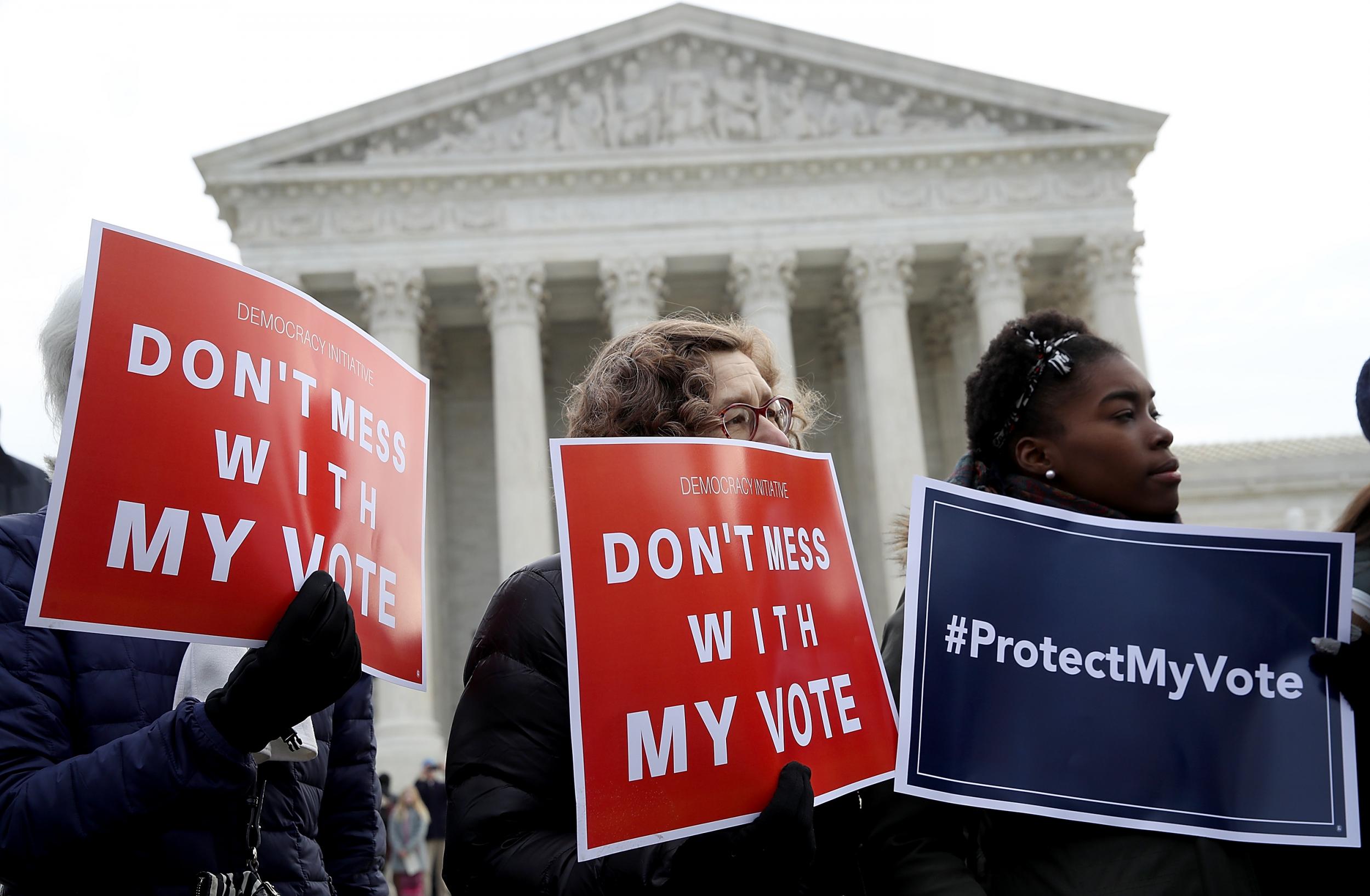US Supreme Court rules Ohio can purge thousands of voters from its electoral rolls
Ohio's voter roll purge law is the strictest in the country

Your support helps us to tell the story
From reproductive rights to climate change to Big Tech, The Independent is on the ground when the story is developing. Whether it's investigating the financials of Elon Musk's pro-Trump PAC or producing our latest documentary, 'The A Word', which shines a light on the American women fighting for reproductive rights, we know how important it is to parse out the facts from the messaging.
At such a critical moment in US history, we need reporters on the ground. Your donation allows us to keep sending journalists to speak to both sides of the story.
The Independent is trusted by Americans across the entire political spectrum. And unlike many other quality news outlets, we choose not to lock Americans out of our reporting and analysis with paywalls. We believe quality journalism should be available to everyone, paid for by those who can afford it.
Your support makes all the difference.The US Supreme Court has upheld the most aggressive policy for purging voter rolls in the country, in a 5-4 decision that set voting rights activists abuzz.
The case concerned the state of Ohio’s policy for wiping inactive voters from its system, which opponents claimed was unconstitutionally strict. Plaintiffs said the policy violated the National Voter Registration Act of 1993 – a federal law prohibiting states from purging voters from their rolls if they fail to vote.
The court disagreed. In a decision split on liberal-conservative lines, the justices found the Ohio law did not violate existing federal statutes.
“We have no authority to second-guess Congress or to decide whether Ohio’s Supplemental Process is the ideal method for keeping its voting rolls up to date,” wrote Justice Samuel Alito in the majority opinion. “The only question before us is whether it violates federal law. It does not.”
Under the Ohio law, the state election board automatically mails out change-of-address notices to registered voters who haven’t voted in the last two years. If the voter fails to respond to the notice, and does not cast a ballot for the next two years, they are automatically expunged from the voter rolls.
The state claimed the policy was necessary to keep its voter rolls accurate and up-to-date. But Larry Harmon – an Ohio-based software engineer – disagreed. The US Navy veteran voted in the 2004 and 2008 presidential elections, but not in the 2012 presidential election or the 2010 and 2014 midterms.
When Mr Harmon tried to vote against a state ballot initiative to legalise marijuana in 2015, he found he had been kicked off the state voter rolls. The next year, he joined the suit against Ohio Republican Secretary of State Jon Husted in an attempt to end the policy.
In 2016, the US Court of Appeals for the Sixth Circuit in Cincinnati ruled in Mr Harmon's favour. The appeals court said Ohio’s rule violated the Voter Registration Act by using his failure to vote as a “trigger” for sending the change-of-address notice.
According to the American Civil Liberties Union (ACLU) – which represented the plaintiffs alongside advocacy group Demos – Ohio’s policy would have kept more than 7,500 people from voting in the November 2016 election had Court of Appeals not overturned it. Reuters found that at least 144,000 people were removed from the rolls under the policy in recent years.
Twelve states and the Obama Justice Department filed a brief supporting Mr Harmon. Seventeen states and the Trump Justice Department filed a brief supporting Ohio. At least a dozen conservative states pledged to adopt similar policies if Ohio's was upheld.
The ACLU reacted to Monday’s Supreme Court decision, saying the ruling was a blow not just to Ohio voters, but to the entire democratic process.
“Voters should not be purged from the rolls simply because they have exercised their right not to vote,” said Dale Ho, director of the ACLU’s Voting Rights Project. “This ruling is a setback for voting rights, but it is not a green light to engage in wholesale purges of eligible voters without notice.”
Join our commenting forum
Join thought-provoking conversations, follow other Independent readers and see their replies
Comments